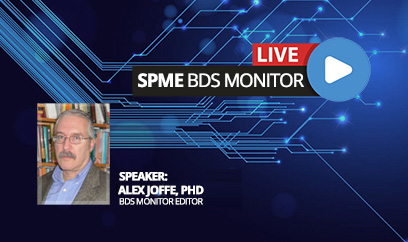Anti-Semitism has seen a “spike of incidents” on college campuses in the past few years, said Kenneth Marcus, staff director of the U.S. Commission on Civil Rights.
Marcus spoke to a small audience of faculty and students Wednesday night as part of a public-education campaign about anti-Semitism on college campuses.
The Anti-Defamation League reported that anti-Semitism has increased by 24 percent on college campuses, a jump from 85 reported incidents to 106, as reported to the United States Senate last March.
Marcus said he would “never have thought” a civil rights organization would “have to have a campaign in the 21st century.”
“I find it appalling,” Marcus said.
Aaron Cohen, a freshman aerospace engineering major and member of the Jewish Student Union said the talk was a “calm, collected account” that avoided polemics.
One audience member, who identified herself as Jewish, said she had seen students disrupt campus events like standing in front to hand out pamphlets and Israeli flags.
Cohen said he would not resort to violence, but agreed that handing out pamphlets in front of events he disagreed with the views of is justified.
“Our goal is to try to react,” he said.
Moshe Rosenberg, coordinator for UC Davis’ Scholars for Peace Middle East chapter, said he was concerned with anti-Semitic comments being defended as free speech on college campuses.
“I wonder where the line is between free speech and hate speech,” he said.
Marcus cited the Brandenburg v. Ohio Supreme Court case, which restricts prior restraints on “inflammatory speech” to comments that would cause “imminent lawless action.”
The 1969 decision overturned the conviction of Clarence Brandenburg, an Ohio Ku Klux Klan leader for a televised speech advocating “vengeance” against various groups and plans for a march through Washington D.C., stating that the speech failed to meet three criteria of intent to incite violence, having that violence be “imminent” and likelihood that the incitements will be taken seriously.
Marcus identified four types of anti-Semitism, among which he said anti-Semitism “masquerading as anti-Israelism,” has seen the most growth. The other types are identified as “traditional European” views which portrays Jews as “greedy and plotting,” Muslim anti-Semitism views, and “a more general anti-globalism.”
Criteria, such as comparing Israel to Nazi Germany, holding all Jews responsible for the actions of Israel and the “demonization” of Israel with traditional anti-Semitic themes or images, are used to differentiate anti-Semitic content from general anti-Israelism, Marcus said.
“It amounts to treating Israel as the Jew of nations,” he said.
Marcus cited examples from two California campuses. San Francisco State University experienced a “near-riot” five years ago at a 400-person rally for peace between Palestine and Israel, he said.
He said that near the end of the rally a handful of students and faculty were approached by what he called an “anti-protest.” People shouted comments such as, “Hitler didn’t finish the job.”
Jewish cultural events at UC Irvine in the past had been beset with demonstrations saying similar comments, he said.
Marcus said he was aware of the Oct. 3 burning of the Hillel House Sukkar tent, but said he was reluctant to comment on it until it was definitively proven to be a hate crime.
One student said she was skeptical of the effectiveness of filing complaints against tenured professors who may voice anti-Semitic comments in class.
Marcus said students should report such comments to the school’s administration and contact the Department of Education or civil rights commission if nothing is done.
The talk was hosted by the SJSU chapter of Scholars for Peace in the Middle East, an independent “grassroots community of scholars” with chapters in over 20 college campuses.
Max Grossman, a professor of art and design and head of the campus chapter, said that 14 members are SJSU faculty.
Two UPD officers were present outside the building for the duration of the talk.
Scholars for Peace in the Middle East’s mission statement states that its views are “consistent both with Israel’s right to exist as a sovereign Jewish state within safe and secure borders, and with the rights and legitimate aspirations of her neighbors.”
Grossman said SPME’s goal is to promote “academic integrity in teaching and learning of Middle Eastern education.”
“SPME has no intent to impinge on the First Amendment,” he said.
SJSU’s chapter is one of five in the Bay Area that includes Stanford, UC Berkeley, UC Santa Cruz and UC Davis.



